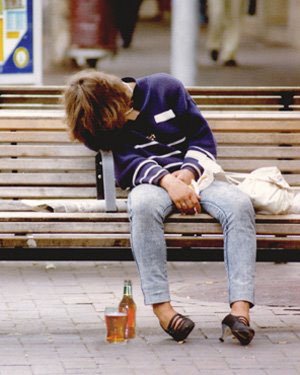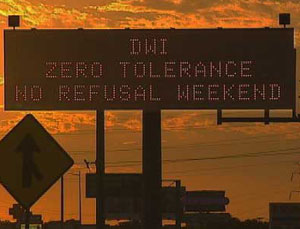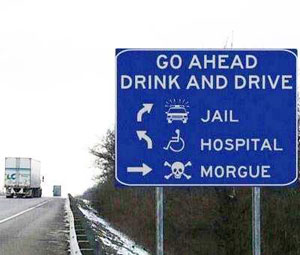 If David Whitaker (D) wins the election for the Arkansas House of Representatives District 85, he would like to enact a DWI Battery statute. Under Arkansas DWI law, penalties increase based on the number of DWIs on your record in the past five years, but do not have specific statutes for DWI with injury.
If David Whitaker (D) wins the election for the Arkansas House of Representatives District 85, he would like to enact a DWI Battery statute. Under Arkansas DWI law, penalties increase based on the number of DWIs on your record in the past five years, but do not have specific statutes for DWI with injury.
A DWI Negligent Homicide can be charged if the accident resulted in the death of another. DWI Negligent Homicide in Arkansas is a Class B felony with a jail sentence of not less than 5 years and no more than 20 years, with a fine no more than $15,000.
Arkansas’s Act 262, which passed in March 2011, will allow for misdemeanor DUI and DWI convictions to be expunged after five years since the completion of the DWI sentence.
Since Arkansas has a five year rule when considering a DWI record, one woman has 10 DWI convictions on her record, but since her last conviction was in 2007, her 11th DWI would be treated as her first.
Arkansas DWI Penalties Overview
- 1st Offense: 1 day to 1 year in jail. $150-$1,000 in fines.
- 2nd Offense: 7 days to 1 year in jail. $400 to $3,000 in fines. Minimum 30 days community service possible in lieu of jail.
- 3rd Offense: 90 days to 1 year in jail. $900 to $5,000 in fines. Minimum of 90 days community service possible in lieu of jail.
- 4th Offense (felony): 1 year to 6 years in prison. $900 to $5,000 in fines. 1 year minimum community service possible in lieu of jail.
- 5th Offense or more (felony): 2 years to 10 years in prison. $900 to $5,000 in fines. 2 years minimum community service possible in lieu of jail.
Boating While Intoxicated (BWI) charges have a 3 year look back period, meaning offenses in the last three years are considered as part of your record. A 1st BWI can be punishable by 1 year in jail and a fine between $250-$1,000. A 2nd BWI in 3 years is punishable by 2 days to 1 year in jail, a fine between $500-$1,000, and a mandatory 30 days minimum of community service. A 3rd BWI or more is punishable by 60 days to 1 year in jail and a fine between $1,000 and $5,000.

 10,228 people lost their lives in 2010 on account of drunk driving. State lawmakers try to tackle this issue with strict DUI laws and penalties. Sometimes states will experience spikes in DUI fatalities, accidents, and injuries, and lawmakers will respond with a crackdown on DUI offenders and pass stricter laws and add harsher punishments. The following is a snapshot of the states with the toughest DUI penalties in the nation.
10,228 people lost their lives in 2010 on account of drunk driving. State lawmakers try to tackle this issue with strict DUI laws and penalties. Sometimes states will experience spikes in DUI fatalities, accidents, and injuries, and lawmakers will respond with a crackdown on DUI offenders and pass stricter laws and add harsher punishments. The following is a snapshot of the states with the toughest DUI penalties in the nation.
 Red Ribbon Week started as an awareness campaign to reduce the demand for illegal drugs, and eventually expanded to include alcohol, tobacco, and violence. This week, MADD is teaming up with State Farm for Red Ribbon Week to discuss the negative consequences of teenage drinking. The team are handing out a booklet called The 411 on Teen Drinking.
Red Ribbon Week started as an awareness campaign to reduce the demand for illegal drugs, and eventually expanded to include alcohol, tobacco, and violence. This week, MADD is teaming up with State Farm for Red Ribbon Week to discuss the negative consequences of teenage drinking. The team are handing out a booklet called The 411 on Teen Drinking.
 17 members of a new Florida DUI Court Program watched as Roger Gilb, a man with no criminal record, was sentenced for DUI manslaughter for the deaths of two people on a motorcycle. The man had no previous criminal record. The point of the program is to show DUI offenders what could happen to them and let the reality of their offense sink in.The DUI Court started in Volusia this April and was started with the help of County Judge Belle Schumann. After the sentencing of the man charged with DUI Manslaughter, Judge Schumann said of the new group, “I know everybody is thinking, ‘There but for the grace go I.'”
17 members of a new Florida DUI Court Program watched as Roger Gilb, a man with no criminal record, was sentenced for DUI manslaughter for the deaths of two people on a motorcycle. The man had no previous criminal record. The point of the program is to show DUI offenders what could happen to them and let the reality of their offense sink in.The DUI Court started in Volusia this April and was started with the help of County Judge Belle Schumann. After the sentencing of the man charged with DUI Manslaughter, Judge Schumann said of the new group, “I know everybody is thinking, ‘There but for the grace go I.'”
 Illinois’ history of DUI legislation follows the course of most states, from changing the limit for driving impairment to .08% and enacting Child Endangerment Laws that enhances penalties for DUI drivers with minors in their vehicles.
Illinois’ history of DUI legislation follows the course of most states, from changing the limit for driving impairment to .08% and enacting Child Endangerment Laws that enhances penalties for DUI drivers with minors in their vehicles.  The rate of
The rate of  Bexar County has
Bexar County has 